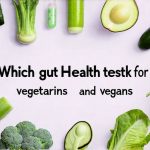The human gut microbiome – the vast community of microorganisms residing in our digestive tracts – is increasingly recognized as a pivotal player in overall health. It’s not merely about digestion anymore; this complex ecosystem influences immunity, mental wellbeing, and even chronic disease risk. What many people don’t realize is that diet exerts an incredibly powerful influence over the composition of this microbial community. The food we consume acts as the primary energy source for gut microbes, shaping which species thrive and which struggle. This leads to distinct microbiome profiles depending on dietary patterns. Understanding these differences between omnivores, vegetarians, and vegans isn’t about labeling one diet “better” than another; it’s about appreciating how different choices impact our internal ecosystems and what that might mean for long-term health implications.
Dietary habits fundamentally alter the environment within the gut, driving shifts in microbial diversity and abundance. An omnivorous diet, rich in animal products, plant matter, and processed foods, provides a wider range of substrates for diverse microbes to utilize. Vegetarian diets, excluding meat but often including dairy and eggs, lead to increased fiber intake from plant-based sources and reduced levels of certain animal-derived compounds. Vegan diets, the most restrictive, eliminate all animal products, resulting in exceptionally high fiber consumption and potentially lower levels of specific nutrients found exclusively in animal sources. These distinctions are not absolute; individual variations exist based on factors like genetics, geography, and lifestyle. However, consistent dietary patterns demonstrably sculpt our gut microbiome, creating unique microbial fingerprints.
Dietary Fiber and Microbial Diversity
Dietary fiber is arguably the most significant factor differentiating microbiomes across these dietary groups. Omnivores generally consume less fiber than vegetarians or vegans, which can lead to lower overall microbial diversity. Fiber serves as a prebiotic – a food source for beneficial bacteria in the gut. When microbes ferment fiber, they produce short-chain fatty acids (SCFAs) like butyrate, propionate, and acetate. These SCFAs aren’t just waste products; they are crucial signaling molecules that benefit host health. They nourish colon cells, reduce inflammation, strengthen the gut barrier, and even influence brain function.
Vegetarians and vegans, by virtue of their plant-based diets, typically have higher fiber intake. This fosters a greater abundance of fiber-fermenting bacteria like Bifidobacterium and Lactobacillus, leading to increased SCFA production. However, the type of fiber matters too. Different fibers support different microbial communities. For instance, resistant starch found in cooked and cooled potatoes or green bananas preferentially feeds certain bacterial species. Vegan diets, lacking animal products, often rely heavily on plant-based sources of protein and fats which can also influence microbial composition, potentially leading to differences in SCFA profiles compared to vegetarian diets that include dairy or eggs.
The impact of dietary fiber extends beyond just SCFAs. Fiber increases gut motility – the movement of food through the digestive tract – preventing constipation and promoting regular bowel movements. This reduces the time harmful bacteria have to colonize and thrive, further contributing to a healthier microbiome. Furthermore, fiber adds bulk to stool, diluting potential toxins and carcinogens. It’s important to note that rapid or drastic increases in fiber intake can initially cause bloating and discomfort; gradual introduction is key for allowing the gut microbiome to adapt. Understanding The Difference Between Indigestion, Acid Reflux, And Food Poisoning Symptoms can help you understand how diet impacts your digestive system.
The Role of Animal Protein & Fat
Animal protein, prevalent in omnivorous diets, undergoes different fermentation processes compared to plant proteins. Undigested animal protein reaching the colon can be broken down by proteolytic bacteria, producing potentially harmful compounds like ammonia, hydrogen sulfide, and branched-chain fatty acids. These metabolites have been linked to inflammation and increased risk of colorectal cancer. While some level of protein fermentation is normal, excessive amounts from animal sources may overwhelm the gut’s detoxification capacity.
Animal fat, particularly saturated fats, can also alter microbiome composition. High levels of saturated fat have been shown to decrease microbial diversity and promote the growth of bacteria associated with inflammation. Conversely, unsaturated fats found in plant oils and fatty fish tend to support a more diverse and beneficial microbial community. It’s not simply about avoiding all animal fats; it’s about balancing them with adequate fiber intake and choosing healthier fat sources whenever possible. Choosing Between Plant-Based And Animal Fats For Better Digestive Tolerance can assist you in making informed dietary decisions.
- Omnivores may have higher levels of Bacteroides bacteria, known for their ability to break down bile acids produced during fat digestion.
- Vegetarians often exhibit a decreased abundance of bile-tolerant bacteria due to lower fat consumption.
- Vegans might experience even more pronounced shifts in bacterial populations related to fat metabolism given the complete absence of animal fats.
Impact on Bile Acid Metabolism
Bile acids, synthesized by the liver and secreted into the small intestine to aid fat digestion, are significantly impacted by dietary patterns and consequently, microbiome composition. Omnivores consuming high-fat diets produce more bile acids, which are then modified by gut bacteria. Specific bacterial species possess enzymes that can deconjugate (remove a component from) bile acids, altering their solubility and absorption. This process influences cholesterol metabolism and overall lipid homeostasis.
Vegetarian and vegan diets tend to result in lower bile acid production due to reduced fat intake. This can lead to changes in the abundance of bacteria involved in bile acid modification. Some studies suggest that plant-based diets promote an increase in bacterial species capable of converting primary bile acids into secondary bile acids, which have different biological effects. Secondary bile acids play a role in regulating inflammation and gut barrier function.
Importantly, the microbiome’s impact on bile acid metabolism is bidirectional. Altered bile acid profiles can further influence microbial composition, creating a feedback loop. This complex interplay highlights the intricate relationship between diet, microbiome, and host health. It also emphasizes why personalized dietary approaches are crucial; what works for one individual may not work for another due to variations in their baseline microbiome and metabolic capacity. The Connection Between IBS And Gut Microbiome can provide additional context on gut health.
Potential Deficiencies & Microbial Compensation
Vegan diets, while rich in many beneficial nutrients, can potentially lead to deficiencies in certain vitamins and minerals found primarily in animal products, such as vitamin B12, iron, zinc, calcium, and omega-3 fatty acids. The gut microbiome plays a role in mitigating these deficiencies through several mechanisms. For example, some bacteria can synthesize small amounts of vitamin K or biotin, supplementing dietary intake.
However, relying solely on microbial synthesis is often insufficient to meet the body’s needs. Supplementation may be necessary for vegans to ensure adequate nutrient levels. Furthermore, the gut microbiome can influence nutrient absorption. Certain bacterial species enhance the bioavailability of minerals like iron and zinc. Conversely, others might hinder their absorption. This highlights that even when dietary intake is sufficient, microbial imbalances can affect nutrient status. The Relationship Between Gas And Acid Reflux Explained may also be relevant if deficiencies cause digestive upset.
- Omnivores generally have a more stable source of these nutrients from animal products.
- Vegetarians may obtain some of these nutrients from dairy or eggs.
- Vegans often require careful planning and supplementation to avoid deficiencies, with the microbiome acting as a partial buffer against shortfalls. If you’re experiencing discomfort, understanding Link Between Slowed Gastric Emptying And Feeling Sick After Eating can be beneficial.
Ultimately, understanding the nuanced relationship between diet and the gut microbiome is key to promoting optimal health. While generalizations can be made about the differences between omnivores, vegetarians, and vegans, individual responses vary significantly. Focusing on a diverse plant-based diet rich in fiber, coupled with mindful attention to potential nutrient deficiencies, appears to support a thriving gut ecosystem and contribute to overall wellbeing. The Connection Between Physical Inactivity And Increased Episodes Of Indigestion And Nausea also highlights the importance of lifestyle factors for digestive health. Key Differences Between Fast-Digesting And Slow-Digesting Foods In Meal Planning is vital for optimizing your diet’s impact on digestion.


















